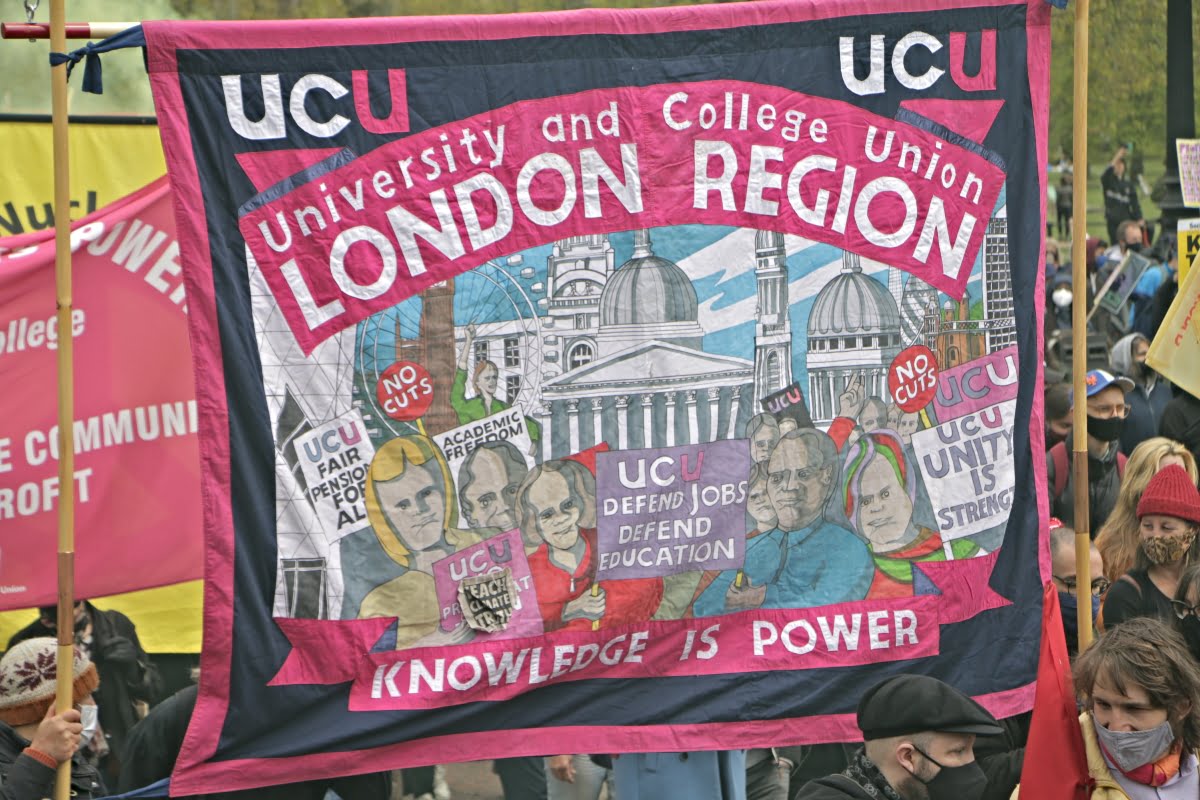Things are coming to a head for UCU members in higher education, with national ballots due to open next month in the long-running disputes over pensions and pay, workload, job security, and inequality. We say: Vote Yes – and prepare for battle!
In recent weeks, the struggle of higher education (HE) workers in the Universities and Colleges Union (UCU) has escalated significantly.
On 3 September, UCU general secretary Jo Grady led a mass online rally, which was attended by around 1,000 members nationally. The rally took place just days before the UCU’s HE sector conference (HESC) on 9 September
At this conference, delegates voted on the next steps in the ongoing disputes over the Universities Superannuation Scheme (USS) and the ‘Four Fights’ campaign, which covers matters relating to pay, workload, casualisation, and inequalities.
The rally and conference paved the way for a national strike ballot, announced last week, on 22 September.
UCU Marxists call on all UCU members to vote in favour of strike action and action short of a strike.
Two ballots, coordinated disputes
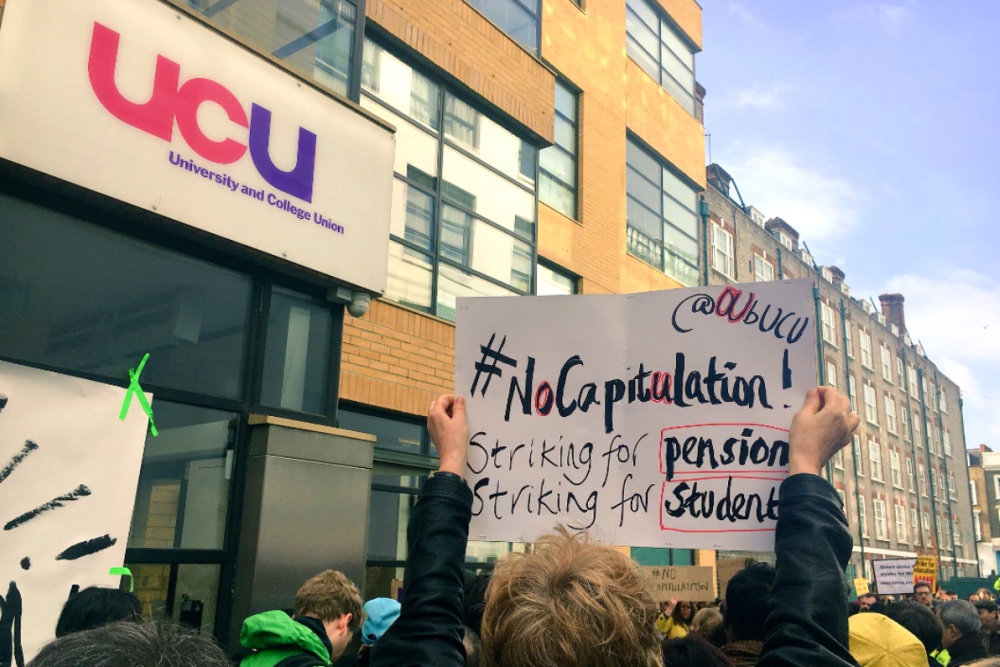 The relaunch of the ongoing disputes over pension cuts and the Four Fights comes after almost a year of stalemate, and of heated discussion within the union about strategy.
The relaunch of the ongoing disputes over pension cuts and the Four Fights comes after almost a year of stalemate, and of heated discussion within the union about strategy.
The motions to delay the disputes or handle them completely separately were defeated at the HESC. Some delegates argued that members feel that there is a hierarchy of urgency to the disputes. These speeches usually ended in calls for delaying action on the Four Fights.
To make matters more complicated, most post-92 institutions are not signed up to the USS, but to the Teachers’ Pension Scheme.
To win on both counts, it is necessary to point out the common cause of these two disputes, and to link them – both on campuses, and to struggles beyond campuses.
Far from being resolved, both issues have been exacerbated dramatically during the pandemic. The decision to take on the two disputes means that the union needs to double its efforts to get out the vote and communicate a clear and coordinated strategy.
Both ballots will open on 18 October and close on 4 November. The Higher Education Committee (HEC) will decide the next steps on 8 November.
USS
 After two separate rounds of strike action to defend the defined benefit scheme (in 2018, and 2019-20), the employers and other governing parties in USS are once again uniting to destroy the pensions of UCU members.
After two separate rounds of strike action to defend the defined benefit scheme (in 2018, and 2019-20), the employers and other governing parties in USS are once again uniting to destroy the pensions of UCU members.
In the 3 September meeting, Jo Grady highlighted the links between this attack and the broader context of attacks on education; the undermining of conditions for academics and other workers in higher education; and the marketisation of the sector, which drives employers to cut staff costs.
The current ‘proposal’ cuts accrual rates to leave members with 12% lower pension benefits; it moves more staff onto a defined benefits pension, which is less stable and lucrative for members; and it reduces protection from inflation.
Using this mix of obscure financial tricks, the employers are launching a huge attack on members’ deferred pay. Pensions, after all, are an earned income that we defer for retirement.
The continuing attacks on the USS pension scheme mean that member contribution rates, currently at 9.6%, could rise up to 13.6% of a monthly salary in 2022 – compared to 8% in 2018.
With a pay ‘offer’ below the inflation rate, this means that the managers of USS are financing their £488,000 average salary by squeezing employees even more.
Many casualised employees at USS institutions are in no position to give up that much of their monthly pay, thus being forced out of the pension scheme allogether.
USS, for most of its governors, is not a scheme designed to provide stable and decent pensions for retired workers. Instead, it is a source of profit for private finance.
This is the root cause of the current attacks, and that message must be carried to members at every level of the union. However, this can only be a start, as “our pension system is a hot mess”.
United action
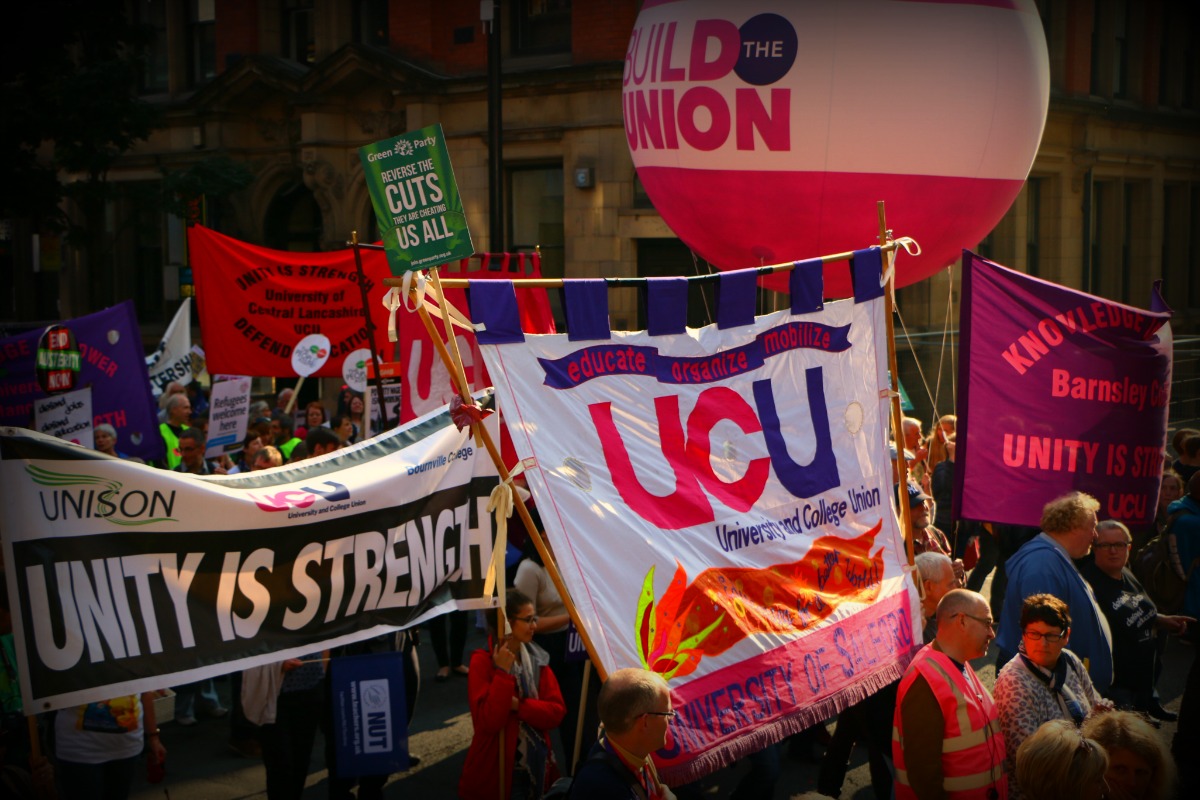 The immediate demands Grady has raised (higher employer contributions, lower member contributions, greater accessibility for low-paid staff) are good ones.
The immediate demands Grady has raised (higher employer contributions, lower member contributions, greater accessibility for low-paid staff) are good ones.
The union’s long-term perspective, however, needs to go beyond ‘governance reform’ of USS and a more optimistic valuation. We need guaranteed, decent pensions for all. This is the rallying call UCU leaders should be issuing.
As well as this, we must be much more aware of struggles beyond our own that occur on campuses.
The UCU leaders have been lamentably quiet about the ongoing strike ballot among Unison HE staff – despite the clear opportunity this presents to increase the scale and effectiveness of industrial action. Such a parochial attitude must be challenged.
The problem of pensions that are at the mercy of financial markets is shared by the rest of the labour movement, whether they are in the UCU or not. We have a huge amount of common ground in our struggles.
We must prepare for co-ordinated action with unions from across the sector, therefore, and must begin raising the call for a one-day public sector strike with comrades from across the movement, as the culminating point of this coordination.
Only on the basis of united industrial action – involving the whole trade union movement – can this multi-sided attack be resisted.
Four Fights
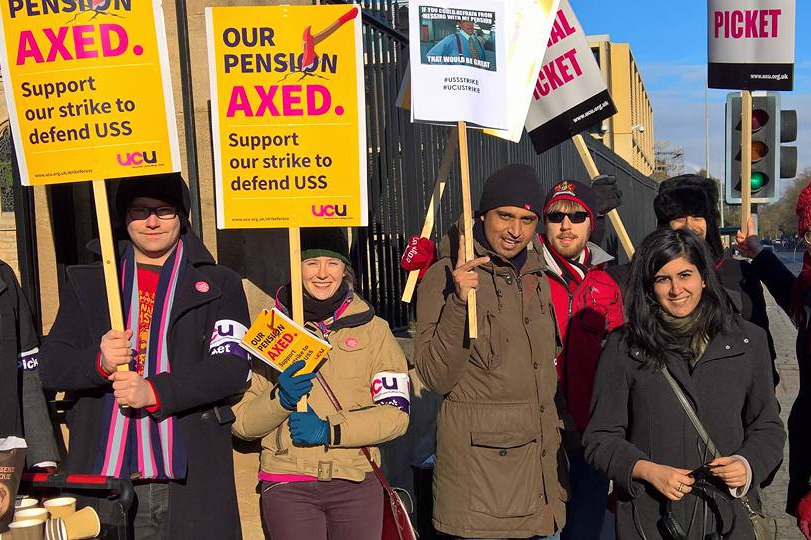 Over recent years, UCU leaders have emphasised that the Four Fights are ‘core’ issues for the union.
Over recent years, UCU leaders have emphasised that the Four Fights are ‘core’ issues for the union.
In this dispute, the union will be negotiating with UCEA, the employers’ body, who have made a derisory 1.5% pay offer. This offer comes after a pandemic and more than a decade of real-terms cuts.
UCEA have also repeatedly failed to address issues of casualisation, workload, and gender and ethnicity pay gaps. The Four Fights represented an important step forward in prioritising the most precarious and oppressed workers in the union.
Grady, however, has also said that the Four Fights form part of a ‘permanent’ struggle, distinct from the more temporary issue around pensions.
Clearly, the problems of low pay and overwork have a more chronic character than the current problem with pensions. Yet both problems have the same root cause: a capitalist system in terminal decline, incapable of offering even mild improvements to workers’ lives.
Workload has been at an unhealthy level in pre-pandemic times. But during the pandemic workload at universities and colleges skyrocketed. This went hand-in-hand with short-term and casual contracts, after institutions off-loaded the risk of a post-pandemic slump onto their employees.
UCU’s leadership, therefore, must find stronger words for the ongoing crisis, and draw out the only real long-term solution to the pressures facing workers and students in higher education: to end marketisation; to fund education through expropriation; and to establish a democratically planned economy, operating in the interest of society, not the bankers and bosses.
Fighting union leaders must raise workers’ sights, not moderate their expectations. The struggle against casualisation, low pay, overwork, and inadequate pensions is ultimately a struggle against capitalism.
Building through struggle
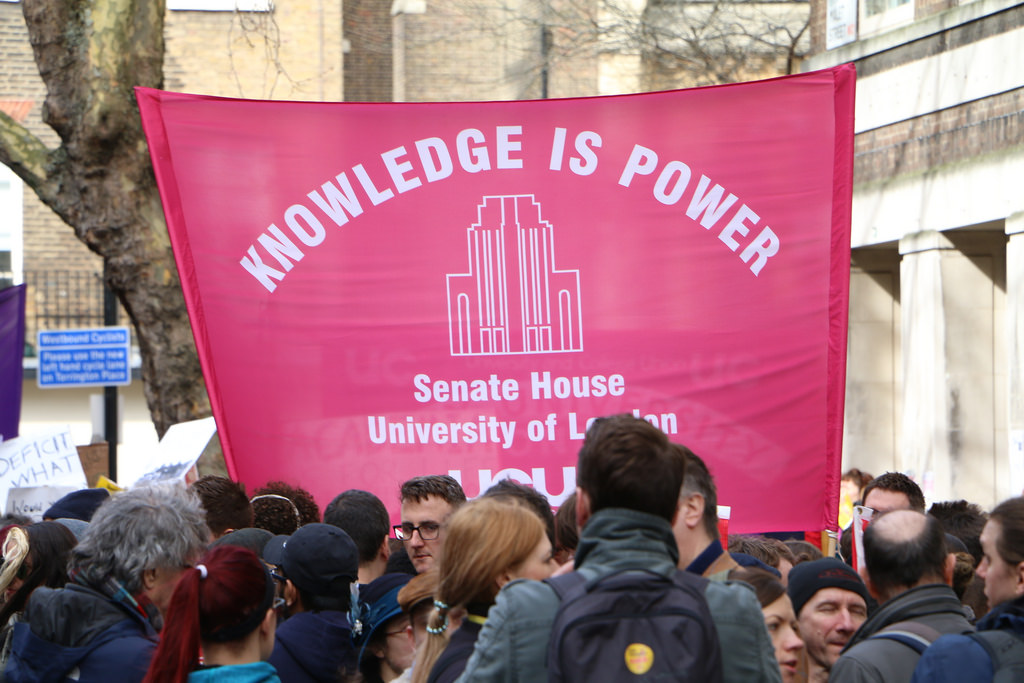 Our plan for victory must be based on the principle of maximum unity in action and absolute solidarity across the union.
Our plan for victory must be based on the principle of maximum unity in action and absolute solidarity across the union.
Union building has been a priority for the current leadership, organising two massively popular organising schools with Jane McAlevey. However, some groups seem to argue that we can only address poverty pay and inequalities after we have built the union.
This is misrepresenting the agenda of Jane McAlevey, who in her book ‘No Shortcuts’, argues for a fighting union to build membership. ‘No Shortcuts’ is a dismissal of campaign-based, top-heavy unionism, in favour of struggle-driven, democratic unionism.
The task of building the union is an urgent one. But recruitment can only be achieved through giving workers confidence in their struggles.
We need to inspire non-members with a plan of action to win. This has been demonstrated repeatedly – most recently at the University of Chester and in the NOVUS prison branch, where local struggles produced extraordinary membership growth.
UCU Marxists say:
- Vote ‘Yes’ for strike action and ‘Yes’ for action short of strike!
- Reject the USS and UCEA offers – for unified strike action on USS and the Four Fights!
- Prepare for a protracted struggle against the employers – for all-out, coordinated, indefinite strike action!
- Fight for a socialist higher education system – for the needs of all HE workers and students!

